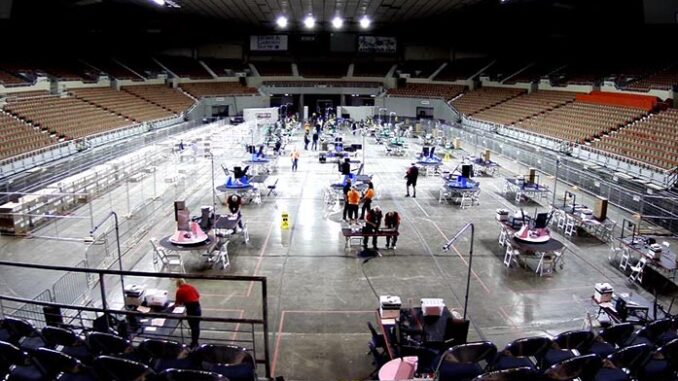
When Arizona Senate President Karen Fann asked Dr. Shiva Ayyadurai to review one aspect of how Maricopa County conducted the 2020 General Election, it was understood the MIT-trained systems engineer would not be able to ask questions of any county employees. After all, the Board of Supervisors publicly stated for months that county officials would not cooperate with the Senate’s audit.
Which is why the report Ayyadurai issued to the Senate on Sept. 24 includes an entire section of unanswered questions about Maricopa County’s election policies and procedures. Arizona Attorney General Mark Brnovich announced last week his Election Integrity Unit will be asking some questions as well, but county officials have responded to the Senate audit with derision.
Some of the dismissive comments came directly from Maricopa County elected officials while others were released via social media by unnamed employees, purportedly with clearance from Board Chairman Jack Sellers.
One election professional has decided to speak out about his concerns with how Maricopa County conducted the election and with the attitude of county officials toward the audit.
David Stevens is the Cochise County Recorder. As such, he is responsible for a great deal of the election process prior to tabulation of ballots. Last week Stevens told KFYI’s James T. Harris of his shock at how Maricopa County responded to serious questions raised by Ayyadurai and other members of the audit team.
Stevens has a unique perspective, as he is a cybersecurity expert by trade and was a four-term state lawmaker before being elected in 2016 as the first new Recorder elected in Cochise County in 44 years.
During his interview with Harris, Stevens said it was “astounding” that the Senate’s audit team discovered multiple county employees who work with elections were using the same log-in usernames and passwords to access county computers. He also found it “tough to watch” other IT issues addressed during the Senate Audit’s final report presentation.
“The problems with the IT stuff were stark,” Stevens said. “And maybe there are explanations for what they did. I don’t see it and if they would have helped in the audit these things would have been answered months ago.”
And that, Stevens told Harris, circles back to why Maricopa County’s elected officials chose to not cooperate with the Senate’s audit and did not allow their employees to do so either. Those officials, he said, decided “to obstruct the audit from Day One and do everything they can not to participate. And that’s not what the public elects us to do.”
Stevens added that it appears those officials may have taken the actions they did because “they were afraid for themselves.”
But Stevens is also concerned with questions raised by Ayyadurai about how Maricopa County employees performed the mandatory signature verification of 1.9 million mail-in (aka absentee) ballots. Anyone voting by mail must sign an affidavit section on the envelope used to seal the ballot. That envelope is then placed into a preprinted mailing envelope.
Arizona law mandates the County Recorder to ensure each affidavit envelope signature is compared against the voter’s registration file before the ballot can be sent to tabulation. But the specific process a county recorder uses to perform the verification is not mandated by law.
In Maricopa County, employees do the signature verification by comparing the voter’s file to a low-resolution, compressed black and white scanned image of the multicolored envelope. That process, Stevens said, can lead to problems.
“What I do in my county is we have the actual envelope in hand looking at the (voter file) signature on the screen, because there are indicators in the signature that help to determine if it’s a valid signature or not,” Stevens explained.
But because Maricopa County employees are looking at a low-resolution image, many of those helpful indicators disappear. That makes it “harder if not impossible to verify” some signatures, Stevens said.
One part of Ayyadurai’s review suggests nearly 4,500 of the 1.9 million scanned envelope images might not have contained any signature, but his report frequently cites the need for further inquiry to Maricopa County for a better understanding of its verification process.
Ayyadurai has also asked whether high resolution images of the envelopes are available, or if county officials will make the 1.9 million original envelopes available for inspection.
Stevens told Harris he believes random, post-election audits should be implemented statewide to ensure voter confidence in the entire election process.
“We have an agency in the state, it’s called the Auditor General, who audits every agency in the state. So why are people afraid of an audit? It exposes bad practices, it can expose corruption if it’s there, and it tells you if you’re doing a good job or not,” Stevens said.
